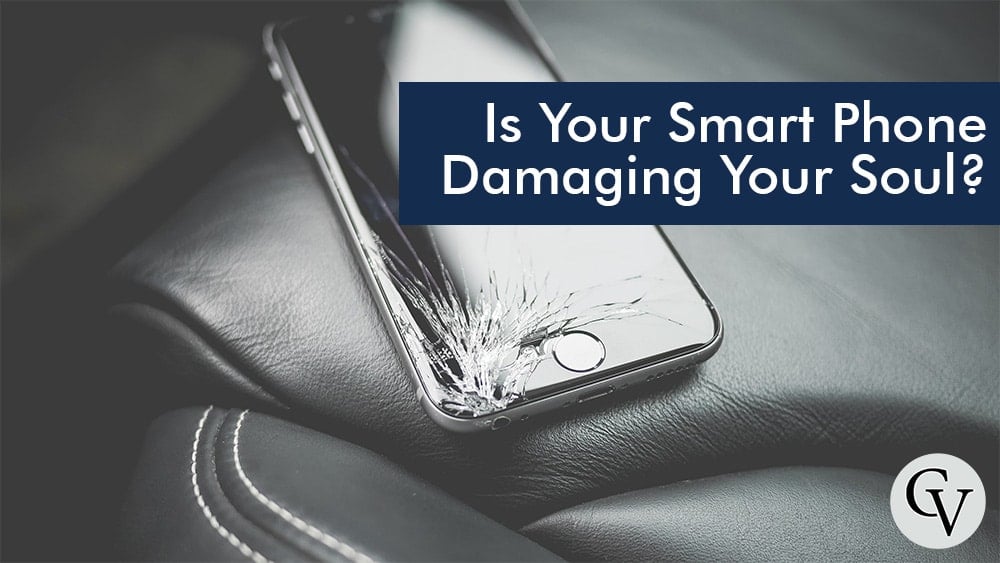[et_pb_section fb_built=”1″ _builder_version=”3.22″][et_pb_row _builder_version=”3.25″ background_size=”initial” background_position=”top_left” background_repeat=”repeat”][et_pb_column type=”4_4″ _builder_version=”3.0.47″ custom_padding=”|||” custom_padding__hover=”|||”][et_pb_text _builder_version=”3.27.4″ text_font=”Futura Light||||||||” z_index_tablet=”500″ text_text_shadow_horizontal_length_tablet=”0px” text_text_shadow_vertical_length_tablet=”0px” text_text_shadow_blur_strength_tablet=”1px” link_text_shadow_horizontal_length_tablet=”0px” link_text_shadow_vertical_length_tablet=”0px” link_text_shadow_blur_strength_tablet=”1px” ul_text_shadow_horizontal_length_tablet=”0px” ul_text_shadow_vertical_length_tablet=”0px” ul_text_shadow_blur_strength_tablet=”1px” ol_text_shadow_horizontal_length_tablet=”0px” ol_text_shadow_vertical_length_tablet=”0px” ol_text_shadow_blur_strength_tablet=”1px” quote_text_shadow_horizontal_length_tablet=”0px” quote_text_shadow_vertical_length_tablet=”0px” quote_text_shadow_blur_strength_tablet=”1px” header_text_shadow_horizontal_length_tablet=”0px” header_text_shadow_vertical_length_tablet=”0px” header_text_shadow_blur_strength_tablet=”1px” header_2_text_shadow_horizontal_length_tablet=”0px” header_2_text_shadow_vertical_length_tablet=”0px” header_2_text_shadow_blur_strength_tablet=”1px” header_3_text_shadow_horizontal_length_tablet=”0px” header_3_text_shadow_vertical_length_tablet=”0px” header_3_text_shadow_blur_strength_tablet=”1px” header_4_text_shadow_horizontal_length_tablet=”0px” header_4_text_shadow_vertical_length_tablet=”0px” header_4_text_shadow_blur_strength_tablet=”1px” header_5_text_shadow_horizontal_length_tablet=”0px” header_5_text_shadow_vertical_length_tablet=”0px” header_5_text_shadow_blur_strength_tablet=”1px” header_6_text_shadow_horizontal_length_tablet=”0px” header_6_text_shadow_vertical_length_tablet=”0px” header_6_text_shadow_blur_strength_tablet=”1px” box_shadow_horizontal_tablet=”0px” box_shadow_vertical_tablet=”0px” box_shadow_blur_tablet=”40px” box_shadow_spread_tablet=”0px”]
Are smartphones causing depression. It’s difficult to imagine isn’t it? In some ways it’s hard to even say it.
Smartphone Addiction. Now, that’s not so hard to believe, but surely it’s not going to happen to you, right? It’s hard to imagine.
A smartphone has no emotions.
A smartphone is not the enemy [no matter how much I really do believe at times that a smartphone really is my enemy]. There is such a a thing as smartphone addiction, and yes there is such a thing as smartphones aiding in rising depression rates.
And yes, all of that is spiritual at its root.
Google it and see for yourself. USAToday has several interesting reads on the issue of smartphone depression and smartphones causing anxiety.
“Screen time” is something that is a household word these days, and it is even a word in our household, too.
Can smartphones be addictive? Absolutely.
Can smartphones cause depression? Only if you let them. That’s often caused by a comparison of your life to the lives you see your “friends” living on social media. And that issue alone … social media causing depression … is a real, real, real issue.
Social media isn’t the problem. Social media is just a symptom of a problem.
And we love to blame things in America. So we are often blaming social media for our own insecurities. Recently the idea of social media obsession and anxiety came up in a post from a Anxiety and Depression Association Of America and they reported:
Overall, about 30% of those who use social media spend more than 15 hours per week online. This can greatly reduce your ability to enjoy real life. – Anxiety and Depression Association of America
The brutal truth is that depression is real, and addiction is real … in many areas of life – but that’s not what I want to get at in this moment.
I think there is a deeper issue at stake here, and it is that God did not … He did not .. create us to walk around with a device that is constantly telling our brain, “Look at me! Hold me! Hey, I need your attention, now! Hey. Ding. Ding, Ding. Ding. Look, something just happened in China and Fox News says you’d better stop your life right now and look at it. Ding: your son wants you to see his sandwich and how awesome it is so here’s a picture. Ding: your former BFF from 25 years ago in high school just updated her profile.”
My heartbreak over smartphones not smartphone depression and my heartbreak is not whether or not smartphones are addictive or that smartphone addiction is a reality. My heartbreak is that our minds, literally, are never able to rest, breathe, absorb life, or enjoy any single uninterrupted moment … because our lives are under constant interruption from a device.
My word, we cannot even watch our sons stand in the batter’s box and swing or our daughters do a gymnastics routine?
Why? Because we are too busy filming that moment instead of being in that moment! We want to document everything now … so we can post it on social.
We are losing our sanity. And I’m not joking.
By the way, if you want a stellar podcast on this, check out Donald Miller’s conversation with Cal Newport. Miller founded a company called StoryBrand here in Nashville. Miller has what I consider the best podcast out there today, and it covers a wide array of topics. This one with Cal Newport on what’s happening to our brains and the clutter that smartphones bring our way is incredibly worth your time.
I am fully convinced – fully convinced – that every one of us have let our minds be immobilized by mobile devices.
We were created by God to have a personal relationship with Him. He sent His son, Jesus Christ, to die on a cross, go to a grave, come out of that grave to show His power over death and sin, and He did all of that to bring us near to Him.
Jesus paid for our relationship with God with His very own life.
But God demonstrates his own love for us in this: While we were still sinners, Christ died for us. [Romans 5:8]
And so the Bible tells us that because a believer in Christ has access to God, therefore God does speak to us. [John 10:27]
God’s Word also tells us that we can approach Him … with confidence! [Hebrews 4:16]
My life, literally, my very life depends on my relationship with God the Father. And He has sent me the Holy Spirit to empower my daily life. I am called to be filled with and empowered in thought by the Holy Spirit.
And so how can that happen – how can I be near to God – when the average US smartphone user gets 46 notifications a day? That’s just on your phone, friend! That doesn’t include your MacBook, or you iPad, or your Surface Pro.
The New York times has research that says the average American checks their phone once every 12 minutes. Honestly … I think that is super conservative.
I think, based on what I see in meetings with my own team, watching people at football games, looking around at restaurants … it’s far more than every 12 minutes. Why? Ding. VIBRATE. DING. RINGTONE … it never stops.
So the real question is what do we do about it? Smartphone addiction and smartphone depression are not fake news. It’s real.
Here’s some honest assessments I’ve installed into my own life. My goal is to help you think through your own life and get your life back. What I’m about to tell you really did make a difference in my life.
Start Over With Your Phone.
About two years ago I was really, really, and I mean really seriously considering going back to a flip phone. There was no app I couldn’t live without. I could purchase a TomTom for a GPS. I could just as easily keep a calendar on an old school planner, though it might be cumbersome, it’s not out of the question.
The more I thought it through, I really needed only to talk and to text.
I worked hard for days and thought from the ground up about my phone and my apps.
The one thing, however, that stored and ran and calibrated my entire professional life was Evernote.

I’ve used it for over a decade now and cannot imagine not having it. [side note: if you do get Evernote get the premium version; worth every penny].
So because I did need the full footprint of Evernote, I did the next logical thing.
Strip Down The Phone.
I literally took all the apps off my phone and started over.
I now have the dumbest smartphone you might ever see! I only use these apps:
- WeatherBug
- Podcast
- Maps
- Dropbox
- Spotify
- iCalendar
And, of course. Evernote.
That’s it. [I’ll get to social media in a second].
Notice something else that is missing from that super short list of functionality on my stripped down phone? Email.
I disconnected all email from my phone. I can only get email when sitting at my MacBook or if I login online which is cumbersome and frustrating – which makes me not do it.
Guess what happened? Nobody even knew it! Nobody yelled at me. The Digital Police didn’t show up at my door and force me to reconnect my email to push it to my phone.
Now, many of you are thinking, “My employer would never, ever let me do that?”
Really? I bet that’s not true. I bet you [think] you couldn’t do that … but in reality … your employer doesn’t know if your answering your email via phone or by desktop. And just how productive are you when all you do is answer email?
And if you have a boss that demands you respond the moment they send an email: it’s time to get a new boss or have a super honest conversation with them about narcissism. Which may lead to you getting a new job – but then again – in that context it doesn’t sound like such a bad thing!
Turn Off Notifications.
I promise you. If you do it, you’ll never, ever, ever regret it. There’s honestly no real reason to be notified for stuff that doesn’t add value to your day, like a news alert, a friend’s post, weather alerts, ad infinitum.
Find A Different Pathway To Social Media.
I’m experimenting with something.
I’ve got a Twitter following that is quite large, and in the strangest way, I often feel like I should post something. Isn’t that weird? Anyway, our Digital Missions Director, Dillon Sherlock, who is a Millennial himself, and I were in a conversation not long ago about how Millennials communicate.
I was telling him that I really did want to connect with that generation, and though I don’t feel out of touch at all, I’m a GenX person and they are Millennials; which means I’m not nearly as connected as I think I am. Millennials are using far different ways to communicate than I am normally used to using in my daily life.
Dillon suggested I get back on Instagram. And he told me of the several reasons why. So, I did.
It has worked for sure, especially in helping me connect with students and younger generations.
However, I did not and do not want to get back into a lifestyle of checking my feed 5 times a day and finding that dopamine rush. Which is 1,000% true, by the way – that dopamine hit is no joke. [Harvard Research right here; great read].
My way to beat that was to check out social media from my desktop.
Literally I post images and do any “scrolling” from my desktop – and so what little time I do spend there – I’m not mindlessly scrolling while waiting in a lobby, or on an elevator, or when I get 18 seconds of downtime that I don’t know how to fill! (Is this not tragic for us all?)
And see, that’s the real issue if you ask me. It’s that we’re filling our minds with no moment at all to rest or just look around and notice clouds, or talk with a stranger for a second. We’ve filled those 19 seconds waiting on traffic lights to turn green with a 17 second rush to see what email we might have missed.
Start paying attention to how often you reach for that phone the moment your brain gets a lull. It’ll stagger you.
Stop Taking Phones To Meetings.
I have an incredibly talented team at my church. And we collaborate – a lot!
It is not uncommon at ClearView Baptist Church to have strategy sessions that rise up organically, last 15 minutes, and then we move on from it. We do a lot of strategic thinking about what’s on the horizon.
In those meetings, I desperately need the creative mind of the people in that room. They are not only my friends – they are people our church depends on to make decisions about the Kingdom of God and our church’s future.
So in early 2019 we instituted a new standard: no smartphones in strategy meetings.
We actually power them all the way off. Not on silent – all the way off.
When we go offsite once a month to strategize our team tells their spouses the landline number to where ever the offsite is located and if there’s an emergency, someone will come get us. That’s how the whole world used to work, you remember?
No, the fear is “what if my son needs me? What if something happens and my wife needs to tell me something?” True, but 999 times out of 1,000 what your son wants to ask you, or what your friend needs you for, is something completely trivial like “here’s a video I took of an idiot riding backward on a motorcycle today.”
I also don’t take my phone to lunch. It stays in the vehicle.
And why is that? It’s because I want to give that up to gain something else. I want my life and my soul back.
Constant notifications rob me of that.
Giving Up Your Phone Attachment Allows You To Be In The Moment.
Friend … be where your feet are!
How can you hear from God when you’re constantly being notified? How can you hear your friend’s deep hurt when you’re only halfway listening because you’re trying to text and eat lunch all at the same time? You. Cannot. Successfully. Do. That. [Go back and listen to Cal Newport’s research on “residue” with Donald Miller.]This is absolutely a true (and short) story.
Not long ago a friend of mine asked me to go to lunch with him because, to use his own words, “Jason you seem to work toward a healthy soul, and to be honest, I’m so overloaded. I’d love some insight.”
So we had a long lunch talking about the things we really struggle with in a life of constant overload.
I asked him to tell me what he felt to be the true burden, and he said it was pressure and having no “space” in his life. For some reason, and I don’t know why, but I noticed he was interrupted often in the first 12 minutes by notifications.
So at the 10 minute mark of our conversation about his overloaded soul, I started a mental scoreboard.
From minute 10 to the 22 minute of our conversation, he’d received 12 notifications of some kind, either a call, a text alert, a news alert, or a vibration. One every 60 seconds.
I stopped him at the 22 minute mark and told him I’d been keeping count. And I told him he was averaging being interrupted from life every 60 seconds. I said, “Is this normal?” He said, “Actually, no, it’s usually more.”
And his soul was depressed. Compressed. And oppressed. Talk about smartphone depression!
His phone literally owned him.
And every time “the master” called, or dinged, or vibrated … he obeyed.
Your Soul Matters To God Because You Matter To God
Jesus said we have an enemy. That enemy is out to “steal, kill, and destroy.”
Jesus said in the very next breath, “But I have come to give you life.” (John 10:10)
You can take control of your life by guarding your soul.
Phones are not your enemy. The enemy is your enemy.
So protect your soul!
And hey, by the way, if any of this helped you would you mind doing me a favor? Would you post this on your Facebook feed, tweet it, or email it to a friend that needs it.
The digital age isn’t going away. We must learn to constantly cope and get our lives back, and maybe if any of this helped you it will help someone you care about that is in your circle of influence.
Seriously, if you need us at ClearView, or if you just need someone to talk, we can help you protect your soul by surrounding you with the family of God and wisdom to get you out of the ditch.
Give us a shout and we will be there for you.
By the way … your soul is your mind, your heart, your will, your emotions. According to the Scriptures you have a Body, a Soul, and the eternal side of you is your Spirit. [1 Thessalonians 5:23] If you aren’t super familiar with what your “soul” actually does, there’s a short series where I covered that very thing called Overcoming Overload.
If you want to listen to session one on that it on the IOS podcast app: Protecting My Soul
If you want to watch it on YouTube:
[/et_pb_text][/et_pb_column][/et_pb_row][/et_pb_section]










